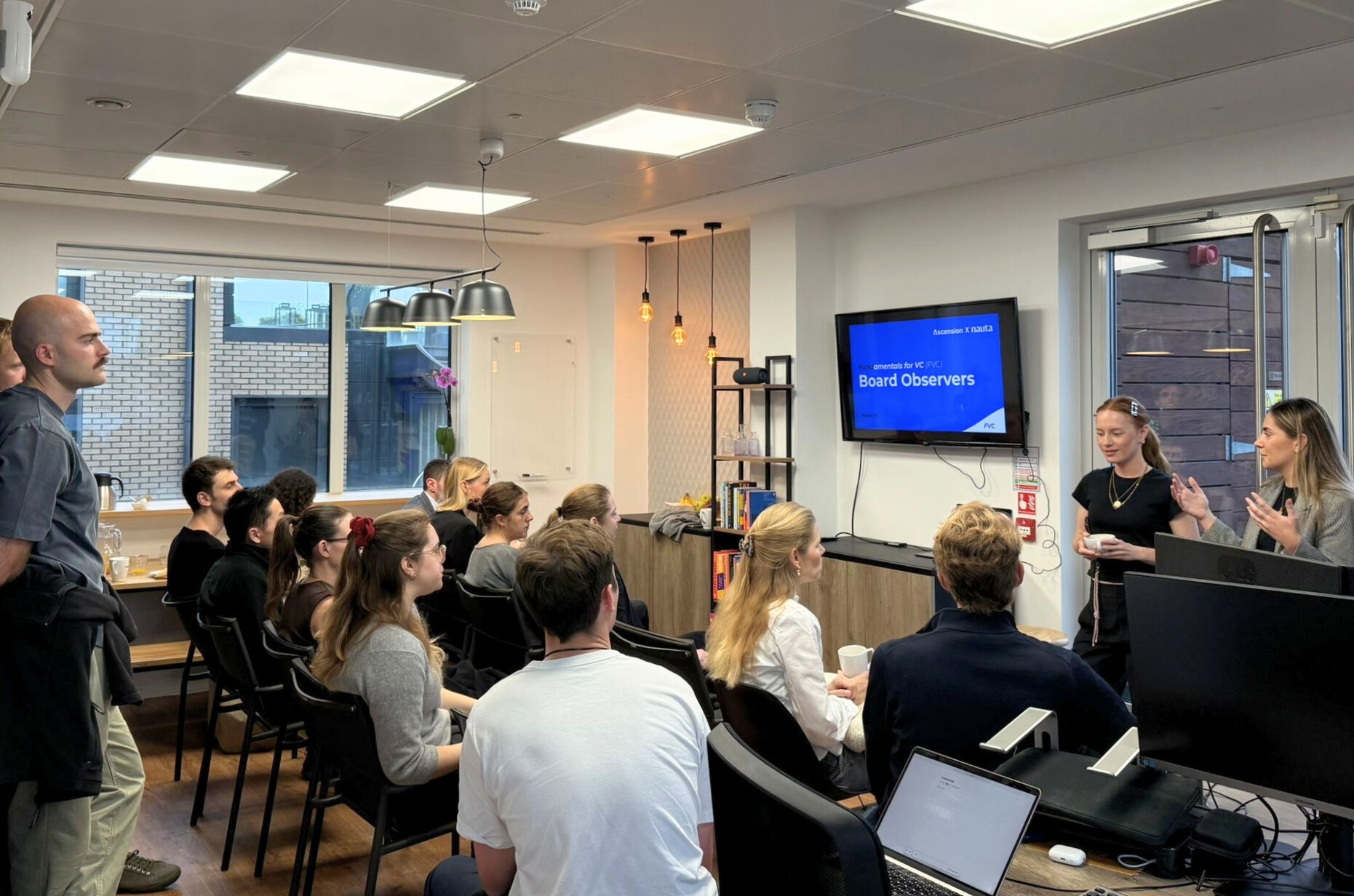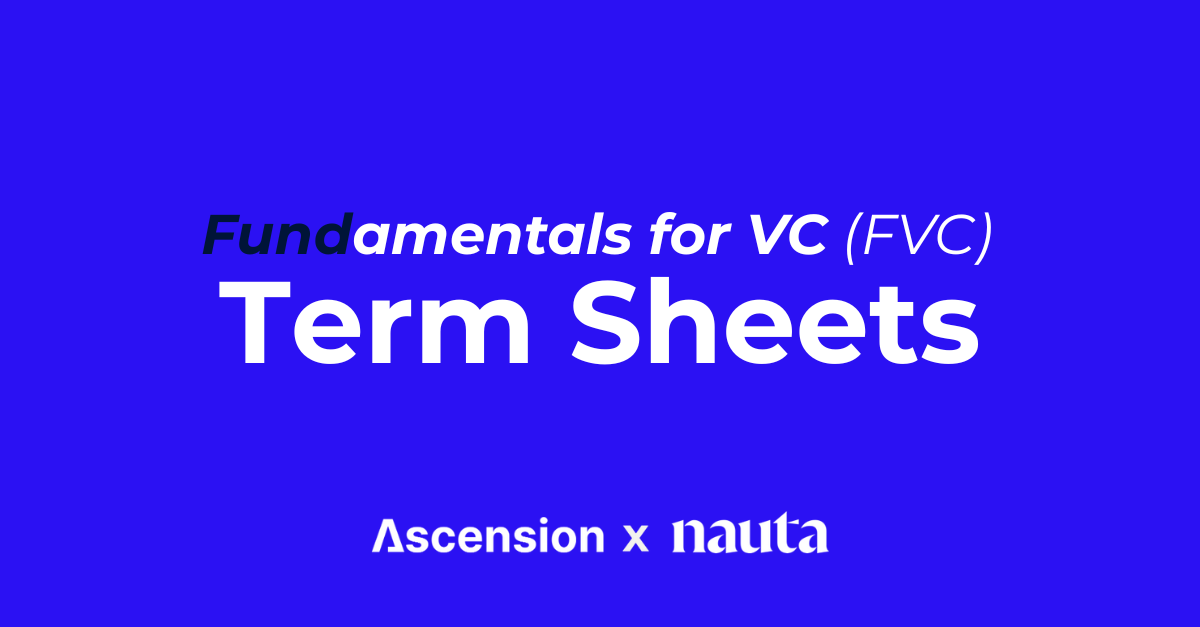
Becoming a Board Observer

We recently hosted our third Fundamentals workshop for junior VCs, all about becoming a board observer. The session was led by Conor Scanlan, Associate Partner at Nauta.
What is Fundamentals?
Fundamentals is a series of educational sessions by junior VCs, for junior VCs, ran by myself and Freya Wordsworth (Associate at Ascension). Although we’re fortunate at both Nauta and Ascension to receive great training and exposure, we know that most learning happens on the job, so we wanted to build a safe space for others early in their VC careers to network and learn from experienced investors. In turn, we hope this better equips us all to make the investment process as smooth as possible for founders.
Check out our previous sessions on Term Sheets and Cap Tables.

The Role of a Board Observer
Conor Scanlan, Associate Partner at Nauta, shared his insights from over a decade in venture capital and experience with more than 20 boards. He underscored the unique challenges junior VCs encounter in the board observer role, needing to build trusted relationships while navigating the dynamics between board directors, the company, and their fund. However, done well, this role offers a valuable opportunity to learn from experienced board members, strengthen relationships with founders, and build your reputation.
At Nauta, as a lead investor, we typically take a board seat, supported by an observer. However, even when a fund only has observer rights, the role can still influence discussions and provide operational input. This session was a candid discussion about what it really means to sit in this role, and here I share some of the key takeaways that stood out.
Why Boards Exist
Boards exist to ensure proper governance and protect the interests of all shareholders. Board directors have a fiduciary duty to act in those interests and accept personal liability when they take on the role. They provide oversight and strategic guidance, advising on major corporate events such as fundraising, exits, and senior hires, while keeping the long-term success of the company and all shareholders in mind.
Stepping into the Role
When I took my first board observer position, my colleague Theo kindly sent me a very helpful email sharing what he’d learnt over five years at Nauta. In short, his advice was to put in the effort to build trusted relationships, be proactive and stay on top of the admin.
Conor echoed this and added a few more practical tips for anyone new to the role:
- Understand your fund's dynamics - who led the deal, how are decisions made, and what does the fund's risk appetite look like?
- Get up to speed quickly - if you didn't lead the deal, dig deep into what the company is building, its challenges, and what motivates the founders.
- Learn the board dynamics - especially at later stages where relationships and routines are already established.
- Be patient - trust takes time, so focus on where you can genuinely help.
Practical Prep
There is no formal ‘board observer’ checklist - VC is an apprenticeship model after all. But there are some practical things you can do, particularly if you are supporting a busy board member!
- Get all board meetings scheduled at the start of the year, with confirmed invites.
- Find time to sync up with the board member in your fund to ensure alignment ahead of a meeting and to debrief afterwards to push your learning.
- Reach out to founders a couple of weeks before each meeting to offer help shaping the materials.
- Before any board, read through the materials thoroughly. Be conscious of which questions can be covered in an email vs the board meeting.
- Be proactive between meetings - track action items, follow up on open threads, and offer help where you can.
What makes an effective board?
While the board should have practical outcomes (i.e. approving budgets, major decisions), the board should ultimately be a strategic forum, rather than a reporting exercise. Building trusted founder relationships is key for this, so the founder views the members as peers and can proactively seek advice. This also means there is unlikely to be any surprises at the board, which should certainly be avoided.
Becoming a trusted advisor
The best members are proactive, empathetic and genuinely helpful. Think ahead - what’s keeping the founder up at night (or should be)? Or what’s one thing that could make their life easier right now? Sometimes that’s introductions for fundraising, sometimes it's just taking a tedious task off of their plate. Empathy and initiative go a long way.
A few principles that I took away from this discussion:
- Listen first, speak second - respect the founder's expertise and make sure that your contributions are well-informed and contextually relevant
- Intentionally invest into building relationships and make an effort to meet in person
- Pick your battles and stay focused on what matters
- Communicate clearly
Final thoughts
While there may be a bit of imposter syndrome to overcome, the observer role offers a chance to learn, build trust, and shape outcomes in subtle but meaningful ways. Approach it with curiosity and consistency, and you will learn valuable lessons and build confidence in how to contribute in your own way.







